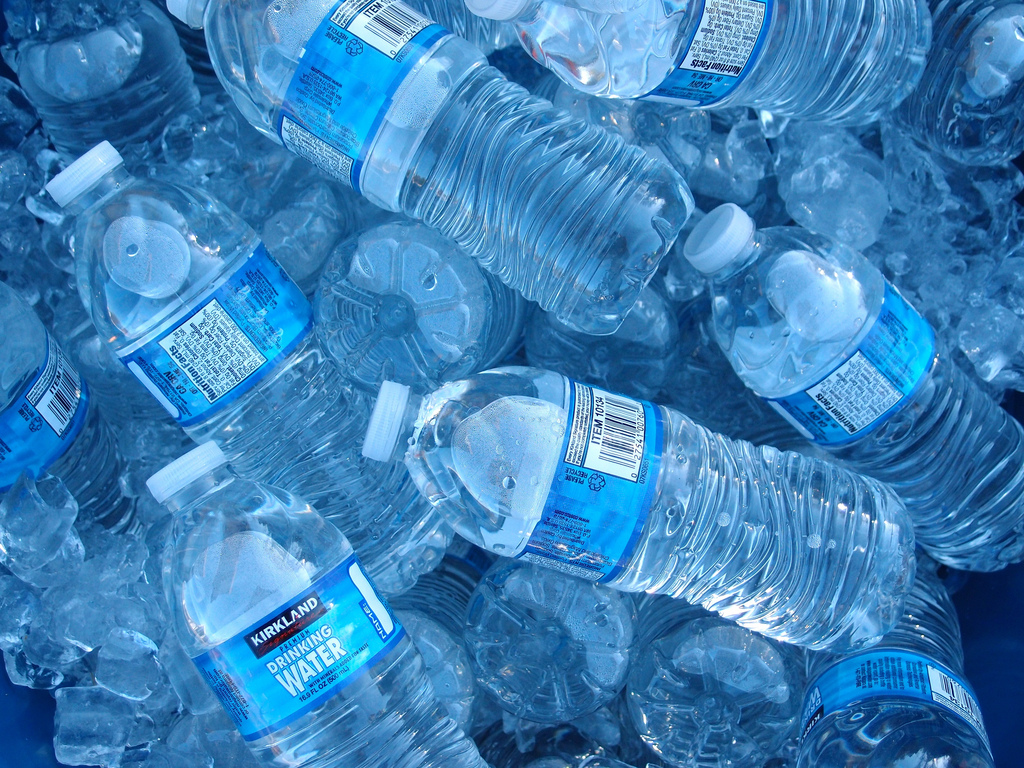The report by the Commission of Inquiry into excess lead discovered in drinking water has said that – during the scandal – stakeholders transferred the duty of supervision to others. Three paragraphs of the report, released on Tuesday, were redacted to avoid any prejudice to relevant criminal investigations and criminal prosecutions.
The commission, consisting of Justice Andrew Chan Hing-wai and former corruption watchdog commissioner Alan Lai Nin, investigated instances of excessive lead found in drinking water at 11 public housing estates last year.

The report, written after 68 days of hearings, said that the direct cause of the incident was solder containing lead, as well as a “collective failure on the part of all stakeholders to guard against the use of non-compliant solder in the plumbing system.”
The stakeholders included the Water Supplies Department, the Housing Authority, four main contractors, plumbing subcontractors and licensed plumbers, which the report said should have formed parts of a “perfect multi-barrier checking system”.
“In practice, however, this multi-barrier checking system turned out to be no more than a paper system in which every party transferred the duty of supervision to the other(s), resulting in a classic case of buck-passing. Trust was misplaced and in the end it was the residents who suffered the most,” it said.

Failed duties
It said that the Water Supplies Department did not provide clear statutory provisions as to who had responsibility over the quality of drinking water at the tap and did not adequately understand the World Health Organisation’s guidelines on water quality standards and lead.
It added that the department failed to update legislation to keep up with changes in British Standards, and failed to uphold a robust licensed plumber regime.
The report said the Housing Authority appeared to rely heavily on document checks in order to control the quality of the construction works undertaken by the main contractors, but failed to include solder as one of the items under its mechanism to verify the materials at the construction sites.

The main contractors, the report said, did not put in place a proper system of supervision and mistakenly placed their entire trust in sub-contractors.
The commission said they believed that lead-ridden solder was intentionally used, or caused to be used, by some plumbing subcontractors due to financial incentives or due to the lower melting point of lead.
The report also said that the water supply systems of estates were rarely constructed by licensed plumbers themselves. Nor were they constructed in the presence of, or under the supervision of, such professionals. Some licensed plumbers played the role of simply affixing their signatures to Water Supplies Department documents.
The commission provided 17 recommendations, including: Further tests of drinking water at all public housing estates – including stagnant water – using an appropriate sampling protocol; the setting up of an independent body to overlook the performance of Water Supplies Department and water quality in Hong Kong; the establishment of a water safety plan; and a review of the Housing Authority control mechanism.
Potential criminal investigations and prosecutions
Meanwhile, the government said the redaction was of a very small part of the report, and was based on legal considerations to avoid any prejudice – actual or perceived – to relevant criminal investigations and criminal prosecutions.
“The government understands that the public would like to see the full report, and the redactions to the report have been kept to a minimum as permitted by law,” a press release read.
The government said it will release the full report after the relevant investigations and court cases – if any – have been concluded.
Three separate paragraphs were redacted, including parts about:
- Mr. Siu Kin-wong, the proprietor of Hang Lee Engineering Company;
- Mr. Yung Kwok Choi, former project manager of Golden Day Engineering Company Limited;
- Ms. Lam Lai-king, procurement staff of Golden Day Engineering Company Limited.
Both Hang Lee and Golden Day were plumbing subcontractors for some of the affected public estates.
